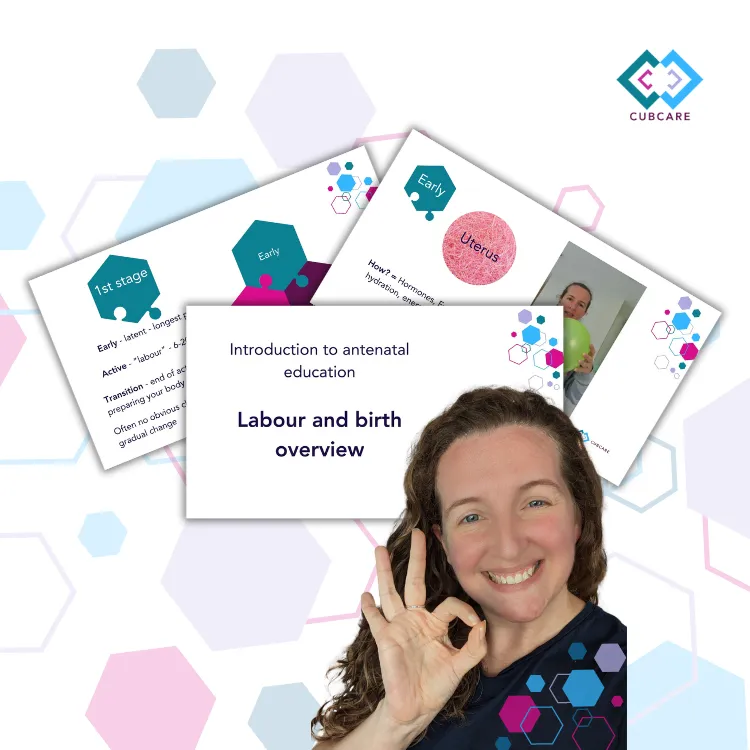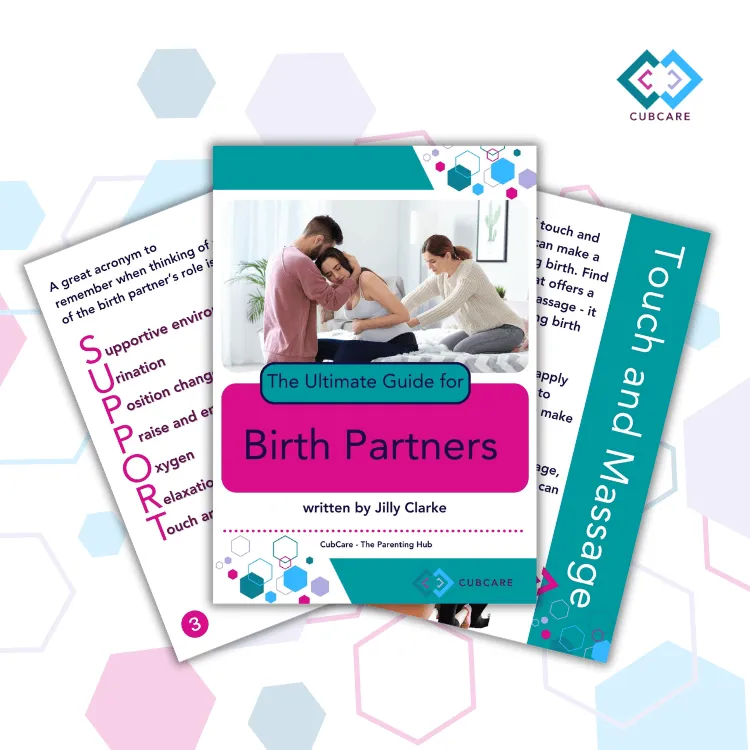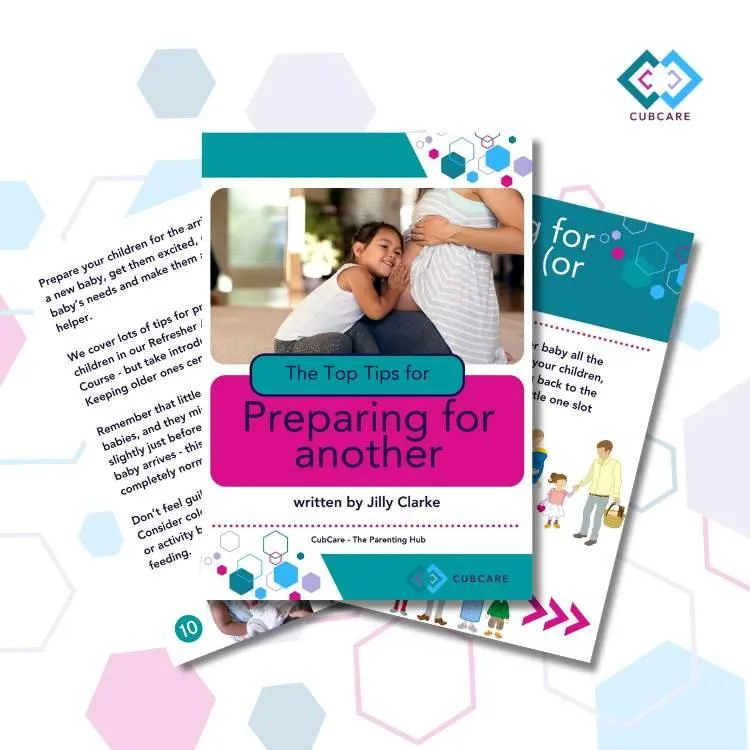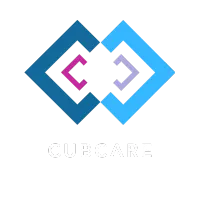We're an award winning Antenatal and Postnatal Education Platform 2025!
(read more here)
CubCare blogs.
From early pregnancy to newborn development.
Advice to help through pregnancy, birth and childhood.
BLOG

Why is creating a postnatal plan important?
"To think in advance about the potential practicalities and difficulties of those early weeks can really make the early days much easier." - Jilly Clarke
Why is it important to plan for postpartum?
Preparing for the period after birth is just as important as preparing for the birth of your baby.
The birth of your baby, whether it is your first or seventh, creates an important shift in normality that takes a while to recover from. When thinking of a postnatal plan, firstly you need time to get to know your little one, to understand them. Then you need time to find your groove as a family unit. Going from just meeting your needs, to meeting baby’s ever-changing needs before anything else can get some getting used to. Or if you have more than one, it is the difficult juggle of who needs taking care of first?!
There is also a mental shift. From hormones changing, processing what happened during birth, dealing with sleep deprivation, getting feeding off to the best start…the pressures can be big. A postnatal plan can help you think of these things.
Importantly, there is always a period of physical recovery from pregnancy and birth as well. Physical healing to be done. From pregnancy, from birth. Whether you had a water birth or a c-section there will be bleeding, soreness, and wounds. Sometimes those wounds are purely internal. Often there are stitches, muscles cut and physical weakness to contend with.
To think in advance about the potential practicalities and difficulties of those early weeks can really make the early days much easier.
When planning ahead to the postnatal period and making a postnatal plan, I always suggest a wonderful acronym created by Catherine Holland and adapted by Sophie Messenger.
Use the term R.E.C.O.V.E.R when thinking about how you are going to tackle the early postnatal days.

Postnatal Plan - R.E.C.O.V.E.R
Use the term R.E.C.O.V.E.R when thinking about how you are going to tackle the early postnatal days.
Rest - get as much as possible
This can be hard to come by even when all baby seems to do is sleep! Your body and brain need as much rest as possible to recover from pregnancy, birth, and the pressures of keeping a tiny human alive! Give yourself at least 6 weeks grace to rest as and when you can, as much as possible. Perhaps spend the first week in bed, the second not far from the sofa and gradually upping your activity levels as and when you feel ready. Don’t feel guilty about naps and getting early nights! Keep afternoons from around 2.30-4pm free for napping, which is when most of us are at our sleepiest.
Eat - good, nutritious food
Nutritious, wholesome food should be your go-to during the postnatal period. (Although there should also be an abundance of cake if that is your thing! Anything goes). Protein to aid muscle recovery, fibre, and lots of water to make going to the toilet as easy as possible and plenty of carbs for energy. Preparing meals in pregnancy or adopting a “bring a dish” policy for any visitors can help. It is likely that you won’t want to be thinking of, preparing and spending lots of time cooking breakfasts, lunches and dinners for a while. Stock up on plenty of easy to prepare fresh food. Stack your freezer full of meals – my top tip is freeze individual portions because it is likely that only one person will be able to eat at a time while the other holds baby.
Chores - who can do the cleaning/washing?
It is likely that the nesting instinct will have kicked in towards the end of pregnancy and your home will be cleaned from top to bottom. But think about who will do the day-to-day chores after baby is born. Can you afford a cleaner, even if just for a few weeks? Perhaps a family member can do your washing for a little while? Can you put up with things being less than perfect? Asking your visitors to throw a load of washing in the machine or take a full bin out when they arrive will be something most people are more than happy to do!
Options - what do I want to do?
What works best for you? There are no hard and fast rules when it comes to the postnatal period. Some new parents prefer to stay at home and have visitors, some prefer to go out and see people for example. Being flexible with plans and how you are feeling is also wise. Cancelling plans at the last minute because of a bad night is ok! Do not feel guilty about taking care of your needs. Everyone else can wait.
Visitors
Take time to consider how do you want visiting to work/not at all? Some new parents prefer to space out visitors over several weeks, with only one or two visiting slots a day. Others prefer to get it all over and done with, having groups of visitors together. Some new parents close themselves away for a few weeks to allow for some bonding time. Others prefer a constant stream of company. There is no right or wrong way. Warn visitors that they will need to bring some food or do a chore before seeing the baby. Consider asking those visitors who would normally sit themselves down and expect to be nourished and entertained to wait until you have found your feet. You do not owe anybody an audience with your baby!
Emotions
Take it easy, this is a big change, and the first few weeks are usually very chaotic with visits and appointments as well as hormonal changes, sleep deprivation and getting to grips with everything. New parents need solid emotional support. Think “mothering the mother”. Surround yourself with people who will appreciate and honour a new parent’s needs so that you are more easily able to honour baby’s needs. If family and friends are more likely to give unsolicited “advice”, fuelling feeling of inadequacy, then consider professional support. A postnatal doula is there to care for you, allowing you to care for baby.
Receive
Support. You will be inundated with people wanting to give gifts and while baby grows are incredibly cute, there are only so many you need (and often gifted baby clothes are entirely unpractical!). How about asking for gifts that look after you as a new parent? Ask for a donation towards a postnatal doula package instead of a gift. Ask for gift cards for your chosen supermarket so you can spend your money on baby items you have chosen for yourself. Request a cleaner for a week rather than another bunch of flowers that you need to keep alive! Make a list of all the possible people that could come to support and help you get some rest after the birth. Explain ahead of time what you will be trying to achieve and ask for specific help from people.

Other useful things to consider for a postnatal plan
How long will your partner (if you live with one) be off work?
How can you ease yourself in to life once partners are back at work?
Would you like to hire a postnatal doula to help support you?
Do you have numbers of professional support like feeding, emotional, and your Health Visitor?
Seeing a physio/osteopath trained in the postnatal period can help your physical recovery
Will your postnatal plan need to be adjusted if you face a long induction or a hospital stay after birth?
If parenting as a partnership, it is important to stick together and learn to adjust as a partnership. Just like anything in life, things may not go according to plan. Be open and flexible to change. But be understanding each other’s non-negotiables. By thinking ahead during pregnancy you will be going into parenthood with planned support and ideas.
A final point that I like to include in our antenatal classes is that it is very easy to go into survival mode and keep just running through the motions of day-to-day life. Remember that you were a couple, and individual people before baby arrived. Make a promise to yourselves that each day you will make time for a moment of connection. Ending the day on a cuddle. Or reminding partners that they are doing great. An encouraging note by the nappy changing station at 3am.
For more information about our antenatal and baby classes see here.
Refresher Antenatal Course in person
Refresher Antenatal Course online
Birth Partner course (included in our Antenatal course)
Antenatal Course in person
Antenatal Course online
Easily navigate to our most popular Blog categories
Download our Freebies

Labour and Birth
Watch our introduction to antenatal education webinar, our labour and birth overview - to start your antenatal education journey. Understanding the process, and what you can do to influence it.

Pregnancy Planner
Free Pregnancy Planner to help you prepare for a little one. Prepare your body, your mind, your finances and your home. Get organised, feel good and prepare for an active, positive birth.

Birth Partner Guide
Your ultimate guide to being the best birth partner during pregnancy, birth and recovery. Learn what you need to do, and what you need to learn to be the best birth partner possible.

Expecting Again Guide
Your ultimate guide to preparing for another birth and an extra baby. Our top tips for navigating pregnancy and birth, and helping your older ones to transition into their new role as a big sibling.
Based in Welwyn Hatfield, offering local pregnancy support and doula services across Hertfordshire: St Albans, Hatfield, Welwyn Garden City, Potters Bar, Stevenage, Harpenden, Hitchin, Barnet, Mill Hill and surrounding areas.
Online antenatal and postnatal education available UK-wide.
© Copyright 2025 CubCare The Parenting Hub. CubCare is operated by The Birth and Baby Company Ltd. Company No. 15655287
Privacy Policy | Terms & Conditions | Medical Disclaimer | Inclusivity and Accessibility

